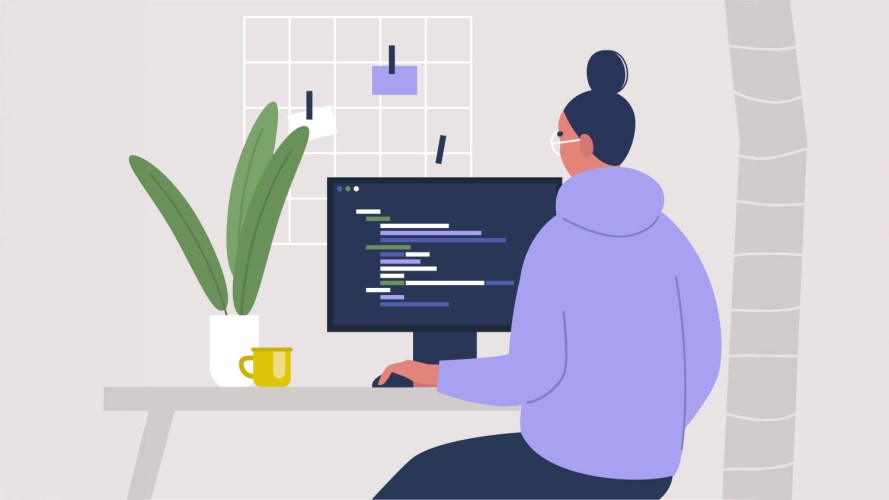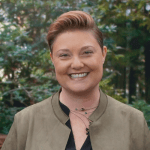In celebration of Women’s History Month, the Salesforce Women’s Network hosted its inaugural Women in AI Day event on March 26 in the Salesforce Tower in San Francisco. The event was a gathering of Salesforce women leading the work on ethical and responsible AI at Salesforce.
This was a dynamic event focused on exploring the intersection of artificial intelligence (AI) and gender diversity. Through engaging panel discussions and thought-provoking keynotes, attendees delved into critical topics such as AI ethics, AI development, diversity and inclusion in AI and AI accessibility. Paula Goldman, EVP & Chief Ethical and Humane Use Officer led our keynote discussion on why diversity is critical to the trust, adoption and success of AI. She stressed how women and traditionally underrepresented groups need to be represented with the development and use of new technologies. Embracing AI experimentation across diverse populations is not merely an act of inclusivity; it’s a strategic business imperative for being able to serve the different needs of customers across a range of backgrounds and perspectives.. Paula focused on her aspirations for AI that:
- AI needs to serve humans — not the other way around
- AI should be our copilot, not an autopilot
- AI must be inclusive. In particular, AI should turbocharge accessibility
- It’s important for all of us to get involved and be represented
Read on for more highlights from the event and to Meet our Women in AI who spoke at the event and who we recognize as leaders at Salesforce working daily to ensure equitable AI product development and adoption.
The ethics behind AI
I kicked off my talk, An Introduction to AI Ethics, by referencing one of my favorite quotes: “Every social justice movement that I know of has come out of people sitting in small groups, telling their life stories, and discovering other people have shared similar experiences.” — Gloria Steinem, American journalist and social activist
Building technology that benefits everyone in society equally is a social justice movement. Trust is our number one value at Salesforce and our customers will not trust any technology that is not safe, inclusive, and accurate. I shared how we can all get involved in ensuring Salesforce is meeting the moment responsibly by keeping a human at the helm of our AI design and helping the industry define what trusted human-AI interactions really look like. Paula Goldman emphasized the importance of the human role in gen AI,
Developing AI skills for success
Irina Malkova, VP, TMP Analytics Lead kicked off an inspiring introduction on skills for success in AI, sharing her experiences and learnings along the way to a career in AI. Irinia said, “I think of myself as not necessarily an expert in AI, but more of an expert in change.” Emily Witt, Director, Research and Insights noted that to really affect this change in technology,
Moderator Suchi Das, Senior Technical Program Manager and Salesforce Women’s Network Growth Chair echoed the panelists emphasis on learned experience on the job, “As someone who has a computer science degree, I think there’s so much more outside of the degree such as job experience that can help you get started.”
At Salesforce we see learning new AI skills as an opportunity, daunting yes, but a tremendous opportunity to upskill our individual business acumen, outside of technical skills. As Armita Peymandost, SVP, Software Engineering said, “there are a lot of opportunities in AI beyond engineering.” So much so that a recent survey found 67% of global business leaders are considering using generative AI, but roughly the same number of IT leaders say their employees don’t have the skills to use it. While it can feel overwhelming, I’m inspired by the number of tools we have, without cost, on Trailhead to take action and get started on learning. I always recommend starting out with our Responsible Creation of AI Trailhead to really ground learning in ethics and responsible use.
It’s easy to feel overwhelmed when starting in AI or digesting new concepts. Annie Zhang, Software Engineering Architect shared advice on facing the rapidly evolving changes in AI technologies, “Focus on the practical skills rather than the theoretical foundations … this can be helpful for beginners. Once you’re able to drill deeper on the theoretical work it’s a bit of a rabbit hole to get your brain wrapped up in. The other approach would be to set realistic goals for yourself. Set aside time every day or once per week to accomplish a small milestone for yourself.”
Embracing diversity
As early adopters and developers, Salesforce is in a unique position to shape the future of AI to ensure AI is built by everyone, for everyone. We discussed the importance of diversity in education, work experiences and lived experiences. During the panel on embracing diversity with Kai Nunez, VP, Research & Insights, Sanjna Parulekar, VP, Product Marketing, Aekta Shah, Principal Researcher, Research & Insights, Sara Tangdall, Director, Product Management, and Shelby Heinecke, Senior Manager, Research, the resonating theme was, we cannot have trustworthy AI without diversity in AI. Diversity is a source of innovation and differentiation that provides us with the opportunity to lead. As Paula stated in her keynote address, “it’s not just the right thing to do, it is a source of innovation and allows us to serve our markets.”
Event moderator, Emily Belke, Senior Solutions Architect and Salesforce Women’s Network Philanthropy Chair posed the question, “What are some actual steps the AI industry should take to ensure that individuals from diverse backgrounds are not just included but valued?” In response, Aekta Shah delved into the importance of building AI products with diversity at the forefront,
Understanding regulation
I later moderated a panel with our experts Lindsey Finch, EVP, Global Privacy & Product Legal, Rachel Gillum, Vice President, Ethical & Humane Use Policy, and Danielle Gilliam-Moore, Director, Global Public Policy to discuss current efforts to establish standards, frameworks, and the future of AI regulation. We discussed the National Institute of Standards and Technology (NIST) Risk Management Framework and our response to the White House Executive Order that distinguishes systems from models and continues to encourage responsible innovation. Rachel Gillum described the ever-changing landscape of compliance, “We’ve long had rules and guidelines for our use of AI in our Acceptable Use Policy … it’s a continual process of updating as new capabilities come to light and new risks emerge.” If we want to build trust in AI, we must wholeheartedly adopt a culture that celebrates and embraces safety as central to AI development and deployment.
Danielle Gilliam-Moore explained the importance of global public policy in dealings with AI in relation to the White House AI Executive Order and similar high-impact governmental relations, “We have been engaging with governments to ensure that Salesforce, our customers, and enterprise CRM AI are truly represented … we’re here if they have questions because these are complicated issues and technology.” We were granted a glimpse of the legal complexities involved with compliance and AI as Lindsey Finch shared insights,
Accessible AI for all
We later learned about what everyone can do to ensure AI works for everyone. Ensuring AI is inclusive and accessible for everyone is critical in order to avoid potential barriers to access. Jacqui Tolisano shared that the Product Accessibility and Inclusive Design team is performing important work to safeguard all our AI products to make sure they meet accessibility standards through a new pilot program called Integrative Support. Within this program, we provide dedicated support to AI product teams to bake accessibility into products from the start. One of the ways Salesforce is ensuring people with disabilities have a voice in our products is through a partnership we have with Fable for accessibility user testing, to gain insights from assistive technology users to inform product strategy and development and catch accessibility issues early. One of Fable’s testers recently said, “I have hearing problems and really struggle with phone conversations. At the same time, I don’t like asking other people to handle phone calls for me because they will never do things the same way I would. I wish I could just tell AI what I want done, and let it handle the phone calls for me.” This is what we mean by empowering.
In addition to our integrative accessibility support, we also seek opportunities to perform user testing with people with disabilities through our partnerships. By having our products tested with people with different disabilities and who use different assistive devices we can improve the user experience for everyone. Crystal Preston-Watson, Senior Digital Accessibility Analyst emphasized the urgency of accessibility inclusion and proper testing in AI,
Meet the women effecting change in Trusted AI at Salesforce
Get to know some of the voices from the event, our Salesforce women in Trusted AI are affecting change every day in their roles.
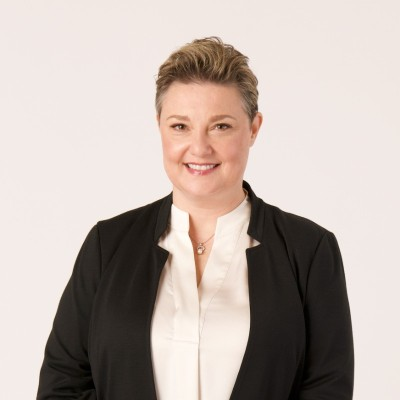
What Kathy’s working on: Collaborating with AI Research and our product teams to ensure our models are developed and implemented responsibly. Working with our legal and government affairs teams to collaborate with policymakers around the globe on AI standards, frameworks, and regulations.
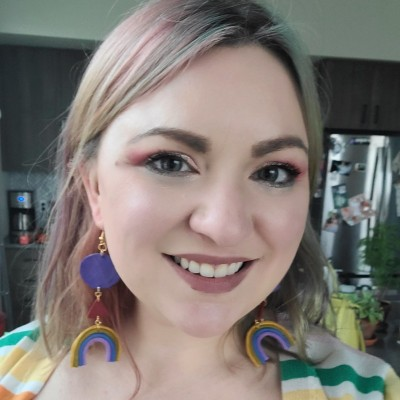
What Emily’s working on: Implementing Salesforce Data Cloud for enterprise customers, preparing these customers to make the best use of CRM + AI + Data. Upskilling our Professional Services delivery teams on Data Cloud by running training and enablement, continuing this learning by maintaining a close community of architects sharing their knowledge.
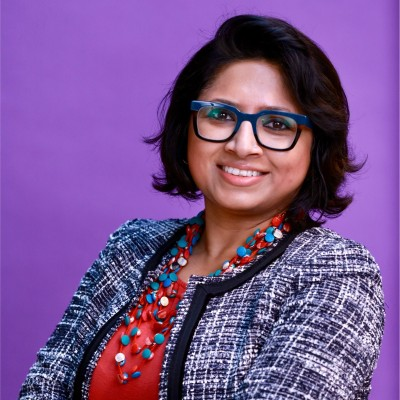
What Suchi’s working on: Migrating Tableau Cloud to Hyperforce including the operations of the core engineering of Tableau Cloud as Senior Technical Program Manager. Being the Global Growth Chair of Salesforce Women’s Network, she is working on gender parity in leadership.
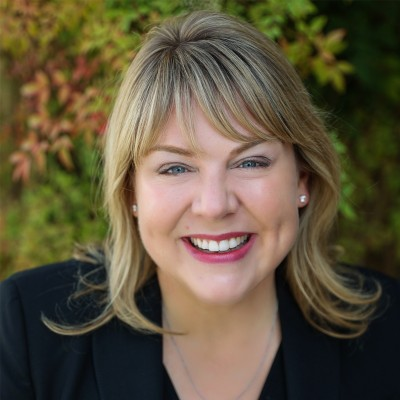
What Lindsey’s working on: Advising Salesforce’s Technology & Products organization on legal issues – including those related to AI and data use — throughout the product development lifecycle. Working with Salesforce’s customers and partners to champion use of our products in compliance with privacy requirements, and partnering with Salesforce’s Government Affairs organization on privacy and responsible data use advocacy.

What Rachel’s working on: Driving responsible product use through Salesforce’s AI Acceptable Use Policy. Engaging with policy makers and civil society organizations around the globe on AI standards, best practices, frameworks, and regulations.

What Danielle’s working on: Working across the different Salesforce organizations to ensure that Salesforce has consistent and coherent Global Public Policy positions on our most important issues — like AI.
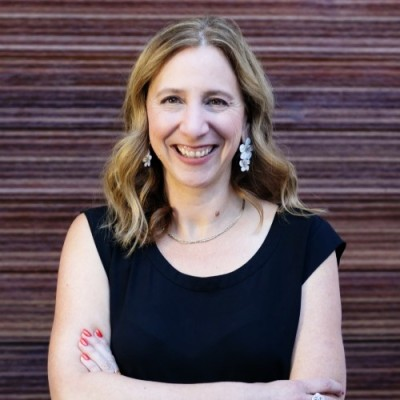
What Paula’s working on: Leading the Salesforce’s Office of Ethical and Humane Use, guiding the responsible and accessible design, development, and deployment of Salesforce technologies.
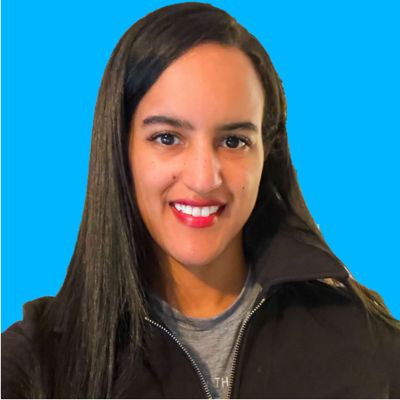
What Shelby’s working on: Leading a team of AI researchers to develop cutting-edge AI for current and future Salesforce products. Focusing on the next frontiers of AI including LLM-powered agents, on-device AI, and beyond.

What Irina’s working on: Building data and AI products to help maker teams achieve usability and find product market fit and help GMs drive growth with product insights. Democratizing data across Tech & Product.

What Kai’s working on: Leading a team of mixed methods researchers, analysts, and data scientists focused on delivering Insights & Research across Salesforce Platform product & services portfolio including but not limited to AI, Data, Marketing, Platforms & Integrations.

What Sanjna’s working on: Leading the product marketing team for all things AI at Salesforce.
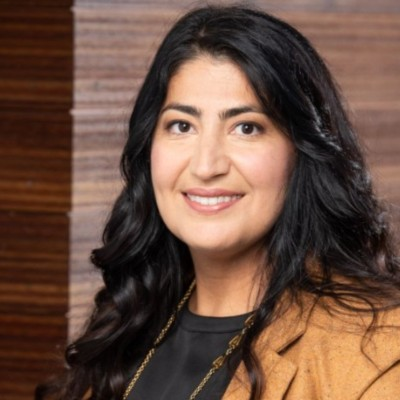
What Armita’s working on: Agentforce, Model Builder for Data Cloud, and bringing generative AI to Service and Sales Cloud products.

What Crystal’s working on: Championing accessibility within Salesforce and ensuring digital assets and tools are accessible to all employees.
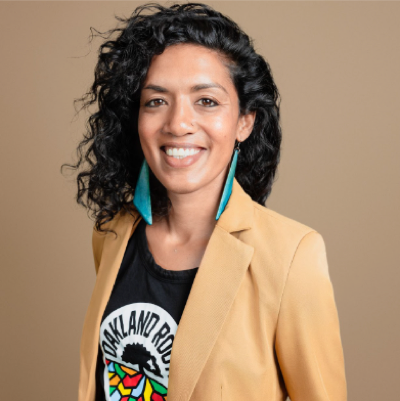
What Aekta’s working on: Investigating high-priority strategic questions related to building the most Trusted AI products across Salesforce Clouds.
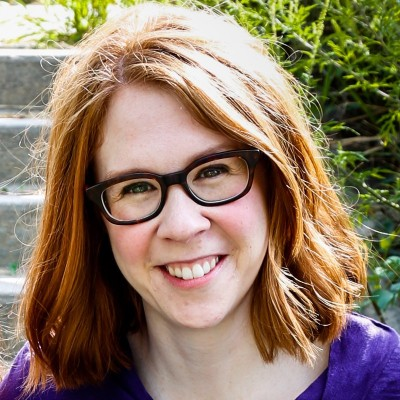
What Sara’s working on: Scaling product ethics reviews across Salesforce and conducting ethics reviews of AI launches for several Salesforce Clouds.

What Jacqueline’s working on: Expanding our Integrative Support program to include additional digital accessibility engineers to provide expert advice and guidance to more product teams ensuring accessibility is baked in throughout the product life cycle. Also, planning creation of an Accessibility Advisory Council launching this year with leadership across the organization to ensure alignment with accessibility strategy and industry best practices.

What Emily’s working on: Bringing customer and user perspectives and experiences into our AI product making — so that we understand what people in diverse roles with diverse experiences need in order to ensure the responsible and equitable use of AI.
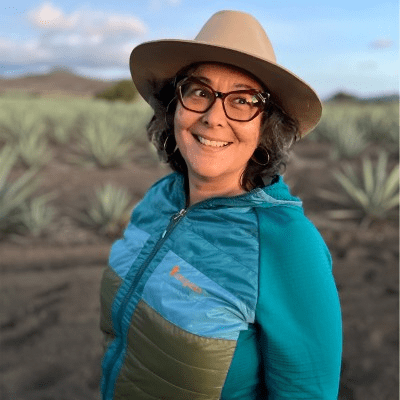
What Kris’ working on: Partnering with the Office of Equality, Research & Insights, and UX to create meaningful opportunities for employees to get involved in the development of responsible AI. In addition to this, partnering with the AI Trust UX team to bring to life Human at the Helm UX patterns in our products.

What Annie’s working on: Copilot Personalization, Copilot FindSimilarRecords Action, and related AI applications.
